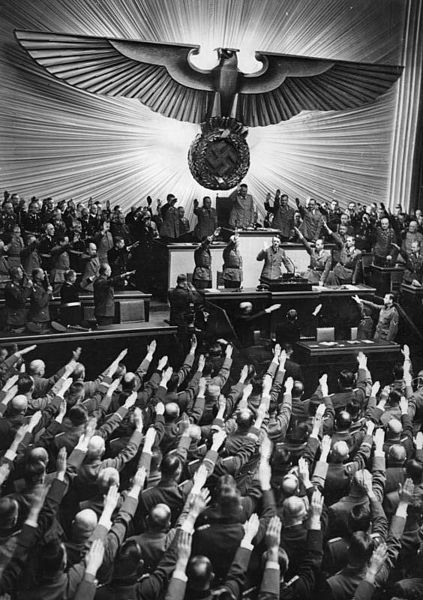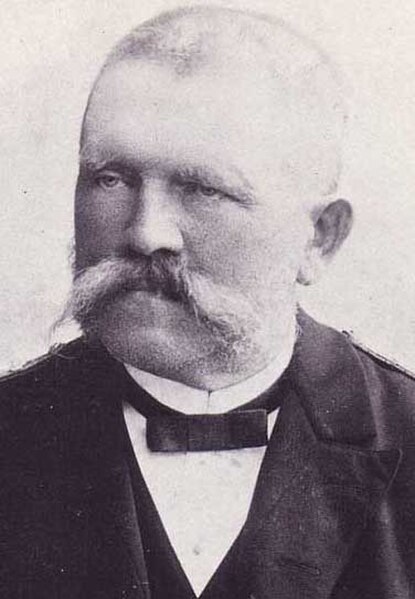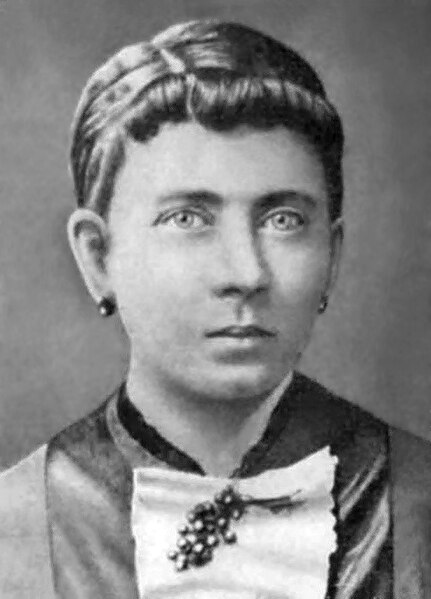Adolf Hitler was an Austrian-born German politician who was the dictator of Nazi Germany from 1933 until his suicide in 1945. He rose to power as the leader of the Nazi Party, becoming the chancellor in 1933 and then taking the title of Führer und Reichskanzler in 1934. During his dictatorship, he initiated the European theatre of World War II by invading Poland on 1 September 1939. He was closely involved in military operations throughout the war and was central to the perpetration of the Holocaust: the genocide of about six million Jews and millions of other victims.
Official portrait, 1938
Hitler as an infant (c. 1889–90)
Hitler's father, Alois, c. 1900
Hitler's mother, Klara, 1870s
A dictatorship is an autocratic form of government which is characterized by a leader, or a group of leaders, who hold governmental powers with few to no limitations. Politics in a dictatorship are controlled by a dictator, and they are facilitated through an inner circle of elites that includes advisers, generals, and other high-ranking officials. The dictator maintains control by influencing and appeasing the inner circle and repressing any opposition, which may include rival political parties, armed resistance, or disloyal members of the dictator's inner circle. Dictatorships can be formed by a military coup that overthrows the previous government through force or they can be formed by a self-coup in which elected leaders make their rule permanent. Dictatorships are authoritarian or totalitarian, and they can be classified as military dictatorships, one-party dictatorships, personalist dictatorships, or absolute monarchies.

Members of the Reichstag salute Adolf Hitler, dictator of Nazi Germany from 1933 to 1945
Benito Mussolini in the March on Rome that installed him as dictator in Italy
Soldiers occupy Seoul, South Korea as part of the May 16 coup that placed General Park Chung Hee in power
An assembly at the Kremlin Palace of Congresses in Moscow, Soviet Union








